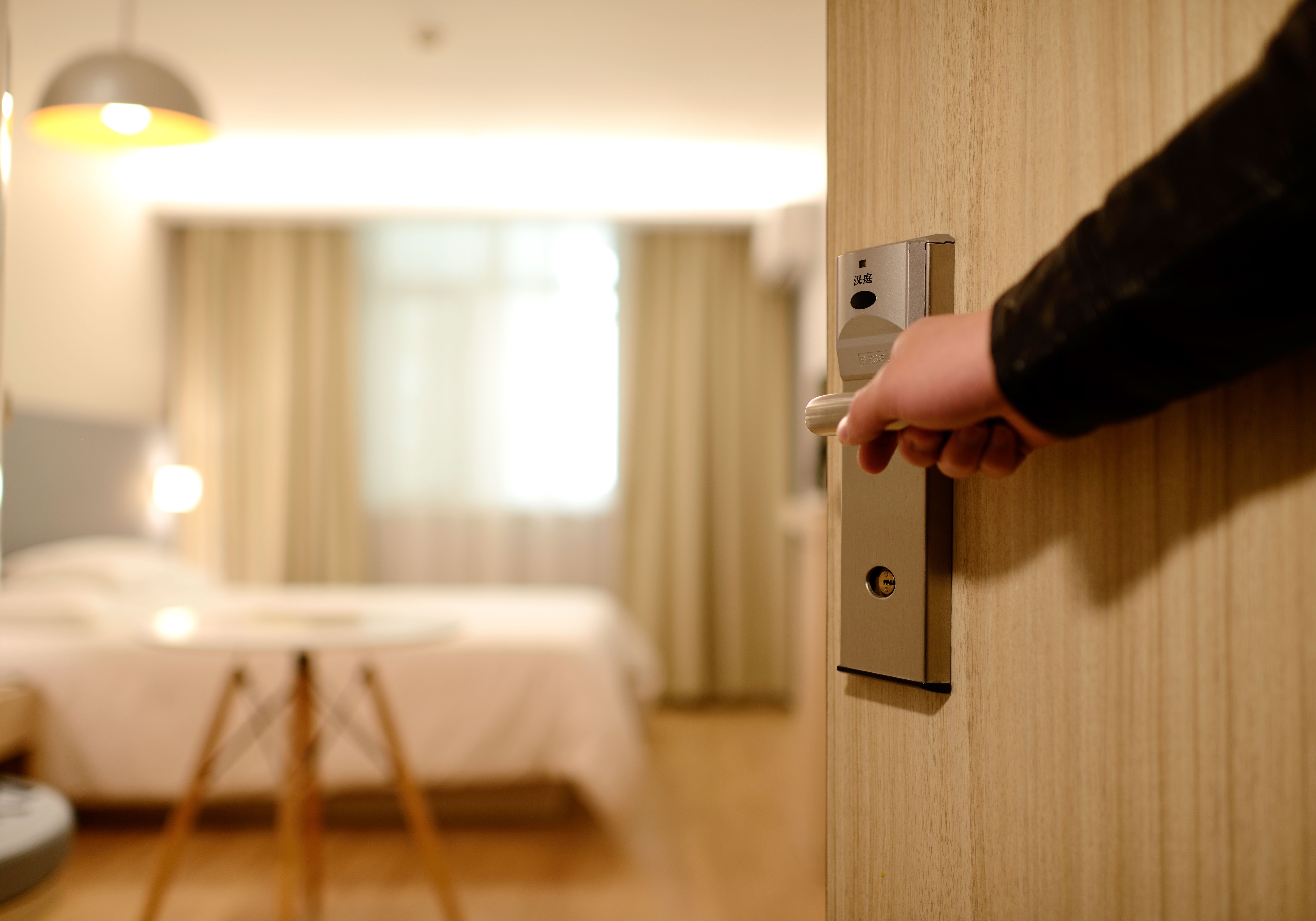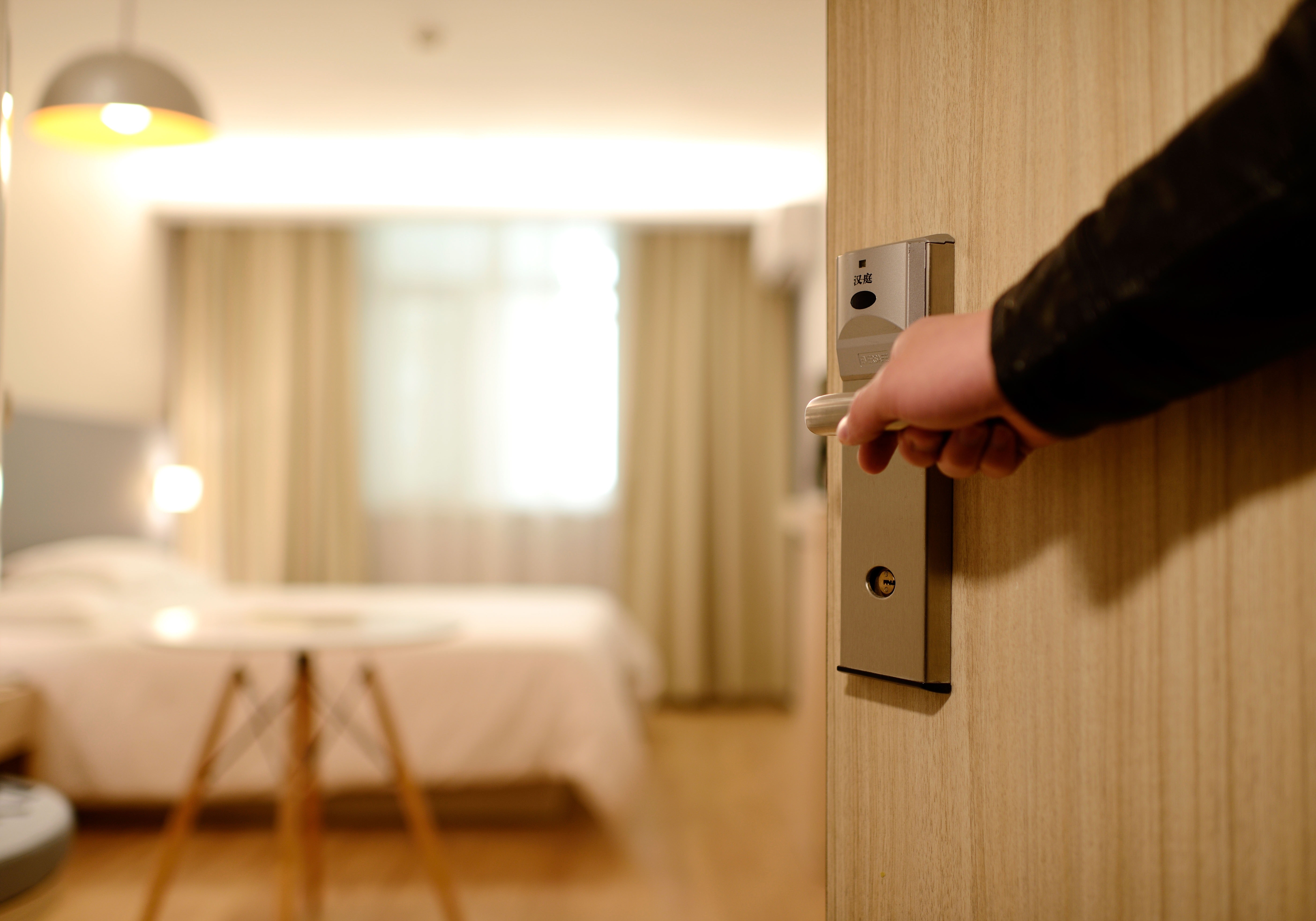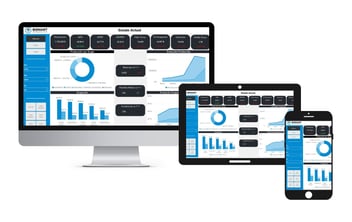Are hotel chains exploiting the full potential of AI? We explore 6 different ways a hotel can apply artificial intelligence.
Artificial intelligence (AI) is revolutionising the business world. However, not all sectors are taking advantage of its capabilities equally. The hotel sector in particular is one of the most likely to benefit from the application of artificial intelligence. In this article we explore 6 ways in which hotel chains can apply AI to improve the operational efficiency and performance of their hotels.

To say that artificial intelligence is revolutionising the world is no longer an exaggeration. No doubt 2023 will be remembered, among other things, as the year the world discovered ChatGPT, the machine learning and deep learning model that has turned artificial intelligence into one of the hottest topics in the public eye.
The truth is that artificial intelligence is transforming the way many companies operate and building new ways of doing business. In fact, according to Forbes, ChatGPT is already the fastest adopted enterprise technology in history.
One of the most beneficial aspects of AI is that it has so many use cases and is useful for all types of businesses. Of course, each business sector will apply artificial intelligence differently depending on what they do, but certain AI use cases are useful for any sector.
One of the sectors that can benefit most from artificial intelligence is the service sector, and in particular the hotel sector. While many hotel chains are already using AI, even without realising it, the sector could benefit much more from artificial intelligence, applying it in areas that have not been sufficiently explored.
- What is the state of the Spanish hotel sector in 2023? Download the report below.
Artificial intelligence is an abstract technology with a wide range of possible applications, which can make it difficult to understand its scope. However, it is one of the most promising technologies of the last century.
In today's hyper-competitive environment, hotel companies need to stay one step ahead of the competition to avoid losing market share. Investing in innovative technologies such as artificial intelligence can even end up becoming an added value to the service a hotel provides to its guests.
Below we explore some of the possible applications of artificial intelligence in a hotel.
6 Use Cases of Artificial Intelligence (AI) for Hotels
1. Occupancy prediction
Predictive analytics is one of the branches of artificial intelligence most widely used by businesses. In the case of hotel chains, predictive analytics algorithms are essential to predict the occupancy of one or several hotels over monthly, quarterly or annual periods.
Hotel chains can benefit from artificial intelligence tools with predictive capabilities to predict the number of bookings and room occupancy in a given period. This will help them anticipate staffing, resource and supply needs. In addition, predictive analytics can also forecast the overall demand for services and outlets for each hotel.
2. Operations & Maintenance Management
Artificial intelligence is also very useful for the overall management of one or multiple hotels, in various areas linked to overall management.
Let's look at some of the ways in which AI can help us in the management of a hotel:
- Staff scheduling: Artificial intelligence has the ability to analyse large amounts of historical room occupancy and booking data to predict the number of staff required for each shift. In this way, staff scheduling can be optimised, avoiding overstaffing or understaffing, which can improve efficiency and service quality.
- Energy management: AI can also monitor energy usage in the hotel and predict the amount of energy needed for the next period. This can help optimise energy use, reduce costs and be more environmentally friendly.
- Predictive maintenance: Artificial intelligence can analyse the maintenance data of equipment in the hotel to predict when preventive maintenance will be needed. In this way, equipment downtime can be avoided and major repair costs can be saved.
- Avoiding management errors: On the other hand, certain AI models such as machine learning and deep learning also have the ability to find patterns among data sets, which can be used to find management errors. The right tool will be able to identify the most common errors and alert managers so that they can prevent them.
3. Creating a dynamic pricing policy
Predictive analytics is also key for the implementation of advanced revenue and financial strategies.
Hotel chains can use predictive analytics to establish a dynamic pricing policy based on competitive behaviour or expected demand.
In the same way, they can also use predictive analytics to predict inflation and the price of consumer goods —especially important in these times of high inflation— to optimise their purchases.
4. Customer service chatbots
After the arrival of ChatGPT, you probably already know what a chatbot is and what it is used for. However, although ChatGPT is a chatbot, it is not specifically used as a customer service chatbot.
Many hotel chains already use chatbots to improve the service and attention they provide to their customers, streamlining processes and extending guest support hours.
A hotel can use an artificial intelligence (AI)-powered chatbot in many ways to improve the guest experience. Here are some examples:
- Customer support: The chatbot can be programmed to answer frequently asked questions from guests, such as check-in and check-out times, information about the hotel, available services and amenities, as well as provide recommendations for nearby places of interest. This capability allows hotel chains to provide 24/7 customer service.
- Automation of reservations: A chatbot can also be programmed to accept room reservations, process meals and other activities linked to hotel cost centres. The chatbot streamlines the booking or purchasing process, offering a more convenient, faster and anytime-of-day experience.
- Payment processing automation: The chatbot can also be programmed to process payments, which can save time and improve the efficiency of the payment process. Guests can pay for additional services, such as meals or activities, through the chatbot.
- Post-stay support: Finally, the chatbot also has the ability to provide post-stay support, answering questions and concerns that guests may have after they have left the hotel. This can help foster customer loyalty and increase guest satisfaction.
It is important to note that a chatbot is not a replacement for human attention in hospitality, but it is a tool that can complement and enhance the guest experience. A chatbot can be especially useful for providing 24/7 customer service and handling common requests, allowing hotel staff to focus on providing personalised attention to guests.
5. Sentiment analysis
Until recently, Natural Language Processing (NLP) was a branch of AI that was largely unknown to the population. However, it is ChatGPT's core strength, so it is likely that this capability will now be more widely known.
Natural language processing is very useful for sentiment analysis. AI technologies with PLN capabilities can analyse textual content (e.g. from online reviews) and determine whether the emotions expressed are positive, negative or neutral.
Sentiment analysis is useful in a wide variety of applications, such as analysing customer opinions on social media, monitoring brand reputation and detecting trends in public opinion.
6. Personalisation of the customer experience
Artificial intelligence (AI) can help personalise a hotel's customer experience in a number of ways. For example, through personalised recommendations or the use of voice recognition and facial recognition devices.
- Personalised recommendations: AI can analyse guest data, such as room preferences, past activities at the hotel, previous bookings and social media reviews, to make personalised recommendations. For example, AI can suggest nearby restaurants that match guests' food preferences or recommend activities based on their interests.
- Voice and facial recognition: AI can also use voice and facial recognition to personalise the guest experience. For example, a facial recognition system could detect a guest's arrival and personalise the welcome screen with information relevant to that guest. Similarly, voice recognition can allow guests to interact with the hotel in a more natural and personalised way.
Today, personalisation of the customer experience (CX) is one of the main drivers of guest loyalty and differentiation from the competition. Increasingly, guest satisfaction depends on non-material elements linked to the experience.
Conclusion
In short, hotel chains are increasingly turning to artificial intelligence (AI) to improve the efficiency of their operations and their guests' experience. AI can help hotel chains optimise their internal processes, such as inventory management and staff scheduling, saving time and reducing costs. In addition, AI can also help hotel chains personalise the guest experience by offering personalised recommendations, AI-powered chatbots, and facial and voice recognition. By using AI, hotel chains can improve customer satisfaction and build guest loyalty, which in turn can lead to greater business success. As AI technology continues to evolve, hotel chains are expected to continue to adopt these solutions to further improve their operations and deliver an increasingly personalised guest experience.
- Don't miss the latest report on the Spanish hotel sector in 2023!



